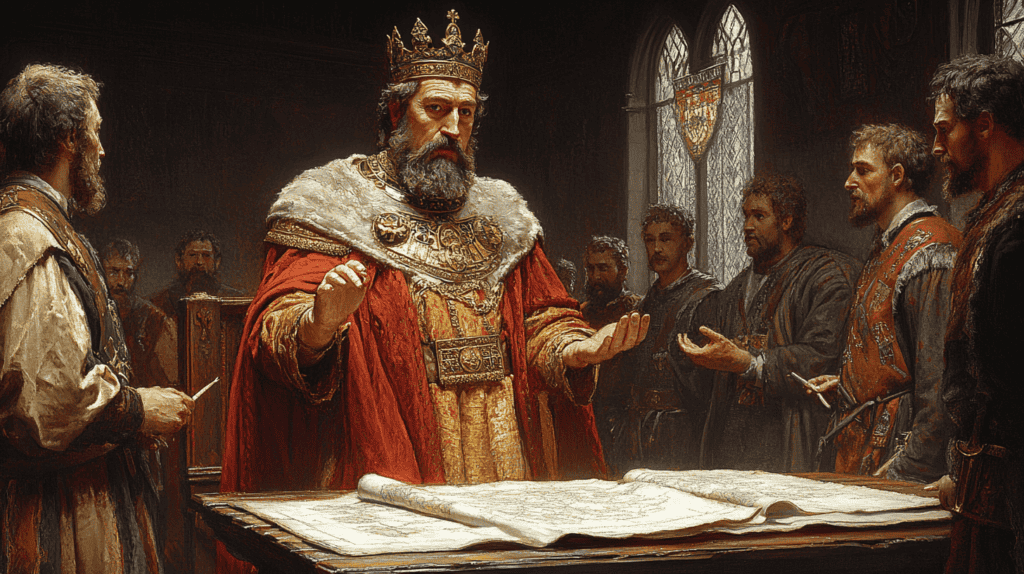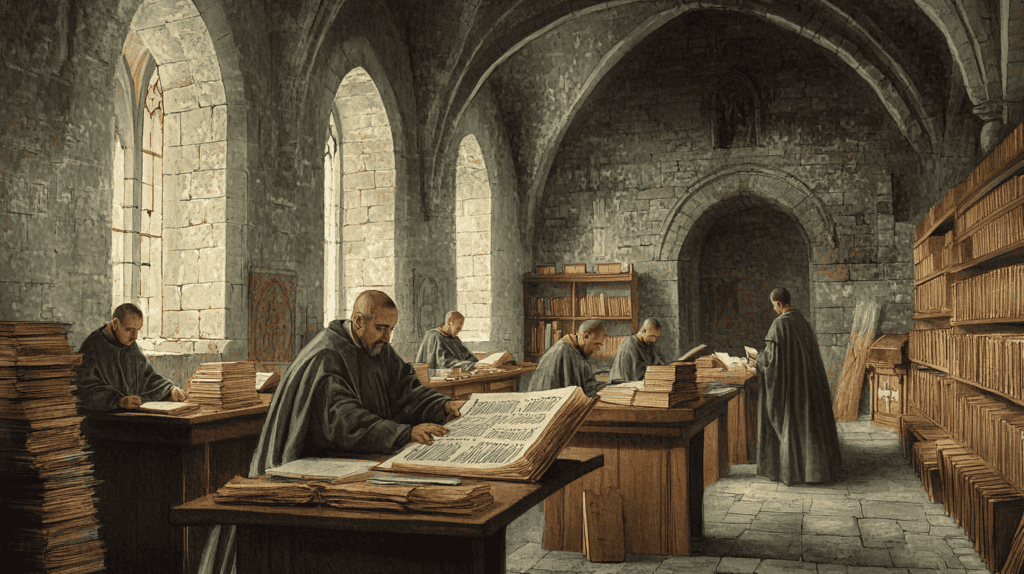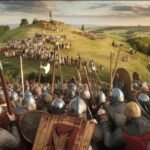
The Battle of Hastings in 1066 stands as one of the most pivotal moments in English history. The victory of William the Conqueror over Harold Godwinson reshaped England’s future, influencing its language, culture, and political landscape for centuries to come. But what if the outcome had been different? What if Harold Godwinson had emerged victorious, defeating William and securing his reign over England? This alternative history scenario presents a fascinating glimpse into a vastly different England and, by extension, a transformed world.
The Immediate Aftermath
Had Harold Godwinson defeated William at the Battle of Hastings, the immediate consequences would have been significant. The Norman invasion would have been repelled, and Harold would have solidified his claim to the English throne. This victory would have ended the succession crisis that had plagued England since the death of Edward the Confessor.
In the short term, England would have remained under Anglo-Saxon rule, with Harold Godwinson continuing the lineage of English kings. The country would have avoided the period of Norman occupation and the subsequent rebellions that occurred in our timeline. Instead, Harold would have faced the challenge of uniting the country after the tumultuous events of 1066, including the earlier invasion by Harald Hardrada of Norway, which Harold had successfully repelled.
Political Landscape

A United Anglo-Saxon Kingdom
One of the most significant differences in this alternative timeline would be the preservation and potential strengthening of the Anglo-Saxon political system. Without the Norman feudal system being imposed, England might have developed a more uniquely Germanic form of governance. Certainly the English would have avoided the virtual slavery imposed on them by their new Norman masters, and the genocidal response to rebellion that the North suffered in the “Harrowing of the North”.
The Witenagemot, the council of Anglo-Saxon nobles and clergy that had chosen Harold as king, would likely have continued to play a crucial role in English politics. This could have led to a more consultative form of monarchy, possibly evolving into a proto-parliamentary system earlier than in our timeline, rather than the absolute monarchy imposed on England.
Relations with Scandinavia
Without the Norman Conquest, England’s political and cultural orientation would have remained more closely tied to Scandinavia rather than continental Europe. This could have resulted in stronger alliances and trade relationships with Norway, Denmark, and Sweden. The Viking Age was just concluding, and a victorious England might have played a more significant role in shaping the post-Viking political landscape of Northern Europe.
Expansion and Unification
Harold Godwinson, having secured his throne, might have turned his attention to consolidating power within the British Isles. Some historians speculate that an Anglo-Saxon England could have achieved unification of Britain earlier than in our timeline. Without the distraction of continental holdings that the Normans brought, English kings might have focused more intently on expanding their influence over Wales and Scotland. Perhaps the Anglo-Saxons would not have invaded Ireland as the Normans did: avoiding 800 years of conflict and suffering on the island.
Language and Culture
The English Language
Perhaps the most profound difference in this alternative timeline would be the evolution of the English language. Without the Norman influence, English would have remained much closer to its Germanic roots. The influx of French and Latin words that occurred after the Norman Conquest would not have happened, or at least not to the same extent.
The language that would have developed, sometimes referred to as “Anglish” by alternative history enthusiasts, would likely have been more similar to modern Dutch or Frisian than to the English we know today. It would have retained more of its complex grammar system and relied less on word order for meaning. The rich vocabulary that modern English possesses, with its abundance of synonyms from both Germanic and Romance roots, would not have developed in the same way.
Literature and Arts
The cultural landscape of England would have been markedly different. The chivalric traditions and courtly love poetry that the Normans introduced would not have become part of English culture, at least not in the same form. Instead, the Anglo-Saxon literary traditions, exemplified by works like “Beowulf,” might have continued to evolve and flourish.
The development of Middle English literature, including the works of Geoffrey Chaucer, would have taken a completely different path. The stories and themes might have remained more closely tied to Germanic and Norse traditions rather than incorporating the French influences that came with the Normans.
Social Structure and Feudalism

Preservation of Anglo-Saxon Social Order
The Norman Conquest brought with it the feudal system, which dramatically altered the social structure of England. In our alternative timeline, the Anglo-Saxon social order would have persisted and evolved on its own terms. The system of earls and thegns would have continued, possibly developing into a uniquely English form of feudalism over time.
The abrupt replacement of the English aristocracy with Norman nobles would not have occurred. This could have led to a more gradual evolution of the nobility, potentially resulting in a less rigid class structure than what developed under Norman rule.
Land Ownership and Economy
The Norman Conquest resulted in a near-total transfer of land ownership from Anglo-Saxon to Norman hands. In our alternative history, this massive redistribution of wealth and property would not have taken place. The economic structure of England would have developed more organically from its Anglo-Saxon roots.
The manorial system might have evolved differently, possibly retaining more elements of the Anglo-Saxon system of folkland and bookland. This could have led to a different pattern of agricultural development and land use compared to what occurred under Norman influence.
The Normans turned the English into serfs who were tied to the land of their Lord, unable to move, change job or even marry and start a family without his permission, and they could be sold, along with the land they worked, to another Lord.
Military and Castle Building

Military Structure
The Anglo-Saxon military system, based on the fyrd (a form of national militia), would likely have continued and evolved. Without the Norman emphasis on heavy cavalry, English military tactics might have developed differently, perhaps maintaining a focus on infantry and naval power.
The famous longbow, which became a staple of English armies in the later Middle Ages, might not have risen to prominence in the same way. Instead, alternative weapons and tactics more in line with Anglo-Saxon and Viking traditions might have been developed and refined.
Castle Architecture
One of the most visible impacts of the Norman Conquest was the proliferation of stone castles across England. In our alternative timeline, the landscape of England would look very different. While some form of fortification would undoubtedly have developed, it might have taken a different form, perhaps more in line with Anglo-Saxon burhs or evolving from wooden motte-and-bailey structures.
The iconic Norman keeps and later medieval castles that dot the English and Welsh landscapes would be absent, replaced by fortifications that evolved from Anglo-Saxon defensive structures.
Religion and the Church
Church Structure and Influence
The Norman Conquest brought significant changes to the English church, aligning it more closely with Rome and continental practices. In our alternative timeline, the English church might have maintained more of its distinctive character, with stronger Celtic Christian influences and possibly a more independent stance towards Rome.
The replacement of English clergy with Norman ecclesiastics would not have occurred, potentially leading to a different relationship between church and state. The church might have retained more of its Anglo-Saxon characteristics, including married clergy and local saints.
Monastic Life
The Norman Conquest led to a boom in monastery founding and the introduction of new monastic orders to England. In our alternative timeline, monastic life would have continued to develop along Anglo-Saxon lines. The great Norman and Gothic cathedrals that define much of English ecclesiastical architecture would not exist, replaced by churches evolving from Anglo-Saxon styles.
International Relations and Empire
Continental Entanglements
One of the most significant long-term effects of Harold’s hypothetical victory would be England’s reduced involvement in continental affairs. The Norman Conquest tied England to vast holdings in France, leading to centuries of conflict, including the Hundred Years’ War. In our alternative timeline, England would likely have remained more focused on its immediate neighbors in the British Isles and Scandinavia.
Without claims to French territory, English monarchs might have directed their energies towards consolidating power in Britain, and maybe Ireland, potentially leading to earlier unification of these islands under English rule.
The Path to Empire
The question of whether England would have still developed into a global empire without the Norman Conquest is complex. On one hand, the maritime traditions of the Anglo-Saxons and their Norse connections might have encouraged earlier exploration and trade, perhaps even beating the Spanish and Portuguese to South America. On the other hand, the continental connections and feudal structure brought by the Normans played a significant role in shaping England’s path to empire.
In this alternative timeline, England’s imperial ambitions might have taken a different form, perhaps focusing more on North Atlantic territories and following a path more similar to Viking expansion than the global empire that developed in our timeline.
Law and Governance

Legal System
The English common law system, which developed under Norman and Angevin rule, would not have evolved in the same way. Instead, the Anglo-Saxon legal traditions, including concepts like the wergild (man-price) and the importance of oaths, might have continued to form the basis of English law.
This alternative legal system might have retained more Germanic elements and could have developed in parallel with Scandinavian legal traditions rather than being influenced by Roman law through Norman connections.
Administrative Systems
The sophisticated administrative systems developed by the Normans, including the Domesday Book, would not have come into being in the same form. However, the Anglo-Saxons had their own developing systems of governance and record-keeping. These might have evolved into equally effective, but distinctly different, methods of administration and taxation.
Conclusion
The defeat of William the Conqueror by Harold Godwinson in 1066 would have set England on a dramatically different course. From language and culture to politics and international relations, almost every aspect of English society would have developed differently. This alternative England would have been more Germanic, more connected to its Scandinavian neighbors, and less entangled in continental European affairs.
While it’s impossible to say whether this alternative path would have been “better” or “worse” for England, it certainly would have resulted in a vastly different country and, by extension, a transformed world. The England that might have been under continued Anglo-Saxon rule presents a fascinating counterfactual scenario, highlighting the profound impact of the Norman Conquest on the course of English and world history.
In this alternative timeline, we might today be speaking a language closer to Old English, living in a country with stronger ties to Scandinavia than to France, and perhaps viewing the world through a distinctly different cultural lens. The Norman Conquest, for better or worse, shaped the England we know today, and imagining a world where it never happened serves as a powerful reminder of the pivotal role this single battle played in shaping not just English, but world history.




